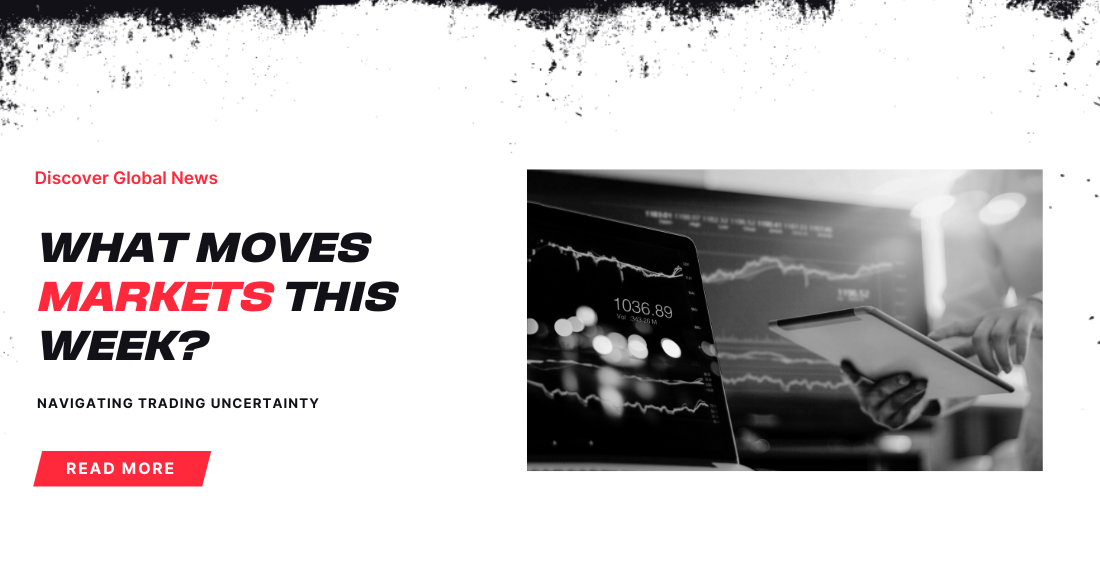
Trading Volatility Rises on Downgrade, Tax, Tariff News
Markets are bracing for a volatile week as a wave of major developments, from a U.S. credit downgrade to tax policy battles and looming tariff pressures – take center stage. Investor attention is firmly fixed on Washington, Wall Street, and global economic signals.
Moody’s Downgrades U.S. Credit Rating
Moody’s reduction in America’s credit rating from Aaa to Aa1 has brought forth new concerns regarding the country’s runaway indebtedness. It stated that its action was motivated by “significantly higher debt and interest levels” compared to others that have equal ratings and lamented successive presidents and Congress at failing to rein in swelling deficits.
U.S. Treasury Secretary Scott Bessent downplayed the impact, calling the downgrade a “lagging indicator” during a weekend guest appearance on Meet the Press. Yet with national debt standing at $36.2 trillion, the move gave further weight to already acrimonious debates in Washington.
Congress Scrambles to Pass Broad Tax Bill
The bill centers on President Trump’s tax plan, supported by a budget framework allowing over $5 trillion in additional debt through tax cuts and increased spending
House Republicans are attempting to bring the bill to the floor by May 26, despite ongoing internal strife. The bill passed a key test over the weekend when four hardline GOP members of the primary committee voted to advance the measure, though a representative Chip Roy, a hardline lawmaker, acknowledged progress but stressed it wasn’t enough, calling for deeper Medicaid cuts and faster removal of clean energy tax breaks.
The bill includes:
- Renewal of Trump’s 2017 tax cuts
- Tax cuts on types of income like tips
- Boost in defense and border security appropriations
- Recommended Medicaid and clean energy tax credit cuts
Holders Flag Before Earnings
Investors are also monitoring the retail sector before big players such as Home Depot and Target post earnings. The attention follows after Walmart warned in a recent week that future tariffs will force it to pass cost increases on to consumers.
Walmart’s comment was among the first blunt indications that the tariffs at the center of Trump’s trade policy are starting to trickle down to regular consumers. President Trump responded by stating Walmart should “eat the tariffs,” yet once more the retailer emphasized its commitment to keeping prices low.
Economic Data: PMI and China Indicators
On the economic calendar, S&P Global’s PMI data for May is out this week. Last month’s reading of 50.6 indicated a sharp decline from the previous month and is now hardly above the level that indicates growth.
Industrial output and retail sales for April in China were mixed. Factory output increased more than expected at 6.1%, while retail sales slowed to 5.1%, further supporting fears of weak consumer spending and ongoing stress in the property market.
JPMorgan Investor Day in Focus
Finally, JPMorgan Chase is holding its investor day on Monday where host CEO Jamie Dimon will discuss the impact of tariffs and general volatility on the economy. Dimon already warned of “significant turbulence” which could impede deal flows, but analysts don’t anticipate material changes in the bank’s financial projections.
The Future Ahead
With the credit downgrade, tax policy reforms, tariff concerns, and decelerating economic metrics, the week ahead can be a make-or-break moment for U.S. markets. Investors will be watching closely for indications of fiscal discipline, consumer resilience, and company management as the trading landscape becomes more complex.
As markets grow more unpredictable, traders need a platform focused on trust, not gimmicks. BullRush Prop prioritizes performance over speculation. If you’re committed to advancing your trading, now is the ideal time to join a model that evolves with you. Begin your trading journey with BullRush today!



